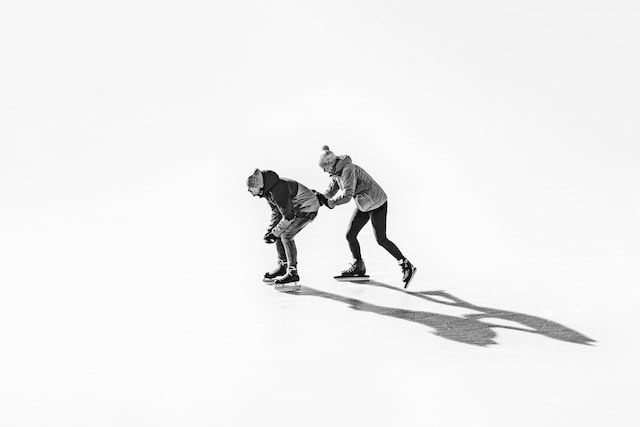The biggest misconception about ice skating is that it’s a complicated sport. If you’re already an adept skater, visit any public rink and you’ll see people of all ages doing basic figure eights and cascades. But if you don’t have the basics mastered yet, take a look at some of these web resources for tips to get the wheels turning in your head and on your feet. Ice skating captions for instagram is a blog with over 800 pages of tips, instructions, and advice for learning how to skate.
It’s broken down into categories covering everything from the basic terminology to specific programs used by two-time Olympic gold medalist John Curry. The site also has a forum where amateur skaters can ask questions and get feedback from a community more than willing to help. The Beginner’s Guide to Skating is a video series produced by the United States Figure Skating Association. There are more than 100 videos available that cover topics like the inside edge, pushing off with your back foot , and landing on two feet . The Outdoor Skate School is another great resource for those just learning how to skate.
Common Misconceptions About Ice Skating :
1. Ice skating is expensive.
Ice hockey is the most expensive sport to play in the United States, costing over $2000 per player for equipment and transportation. Ice skating comes in a close second at about $1200 per season for skates, ice time, lessons and fees. But ice skating can be had much cheaper by buying used skates from another skater on craigslist or from an online classified site like ebay.
2. The best skaters are born with natural talent.
While genetics does play an important role in ice skating, it is by no means a prerequisite for success. For example, Janet Lynn’s parents never skated until their daughter started competing. Both her mother and father were excellent skaters. In fact, her father was a judge at the 1980 Olympics and her mother was a figure skating coach at the time of the interview.
3. To be good at ice skating, you need to go to expensive ice rinks.
The best skaters in the world skate on the outdoor rink at the local park or other public rinks. Many U.S. figure skaters train full time on these rinks and at these schools, many of which are free to attend. This is where they get their skate sharpening and lessons as well as where they get their competition experience. The public rink is also where they learn how to fall safely.
4. Ice skating is a dangerous sport.
The most common injuries are abrasions, sprains and strains. However, there are a handful of catastrophic injuries that have occurred over the years: Steve Mckee – The 1992 U.S. men’s figure skating champion suffered a broken neck after he landed on his head during competition. He fractured C5 and C6 vertebrae but still managed to perform his free program before being taken off the ice on a stretcher .
Marissa Castelli – During the 2009 world championships, Marissa Castelli was doing rugby turns when her skate hit a rut in the ice, she lost control of her blades and fell head first into the boards. Her right leg was badly broken and she required 22 surgeries to repair the damage. Jaclyn Hawkes – During the 2007 nationals, Jaclyn Hawkes was doing a jump when she lost her balance while jumping and her skate snapped; she crashed into the ice and broke both wrists, ribs, arms and both legs. She was hospitalized for almost a month while recovering from the numerous fractures.
5. Competitive ice skating is all about artistry.
While artistry is an important component of figure skating, it is not everything about it. In fact, every single element that makes up an ice skating program is decided by a specific set of rules and guidelines developed by international figure skating officials . The ice skating world has even developed its own language and terminologies to describe the technical elements that make up figure skating. This is why figure skaters are not allowed to look at the audience during a performance. They are also not allowed to express their emotions in any way, other than through their program.
6. Figure skating is an Olympic sport.
It will be involved in the 2018 Olympics in Pyeongchang but technically it’s not an Olympic sport, it’s an “amphibian” sport in accordance with the Olympics umbrella of sports. Its rules are decided by the International Skating Union (ISU) which was first founded in 1892. There are currently more than 50 member countries of the ISU, but not the United States. The US Figure Skating Association (USFSA) oversees all ice skating competitions and is responsible for determining whether a skater can compete in any given competition .
7. Everyone likes to watch figure skating.
It’s true that NBC gave a lot of airtime to figure skating during their Olympic coverage in 2010 and 2014, however, none of it was live action—just pre-recorded performances and interviews with judges.




